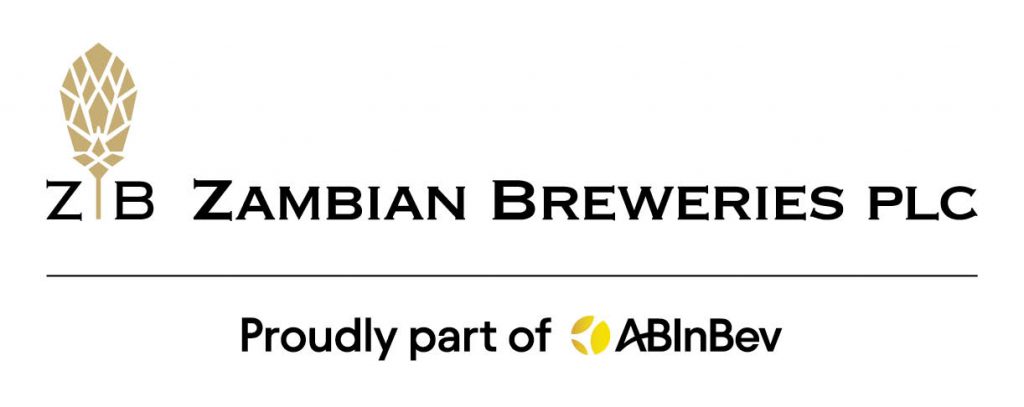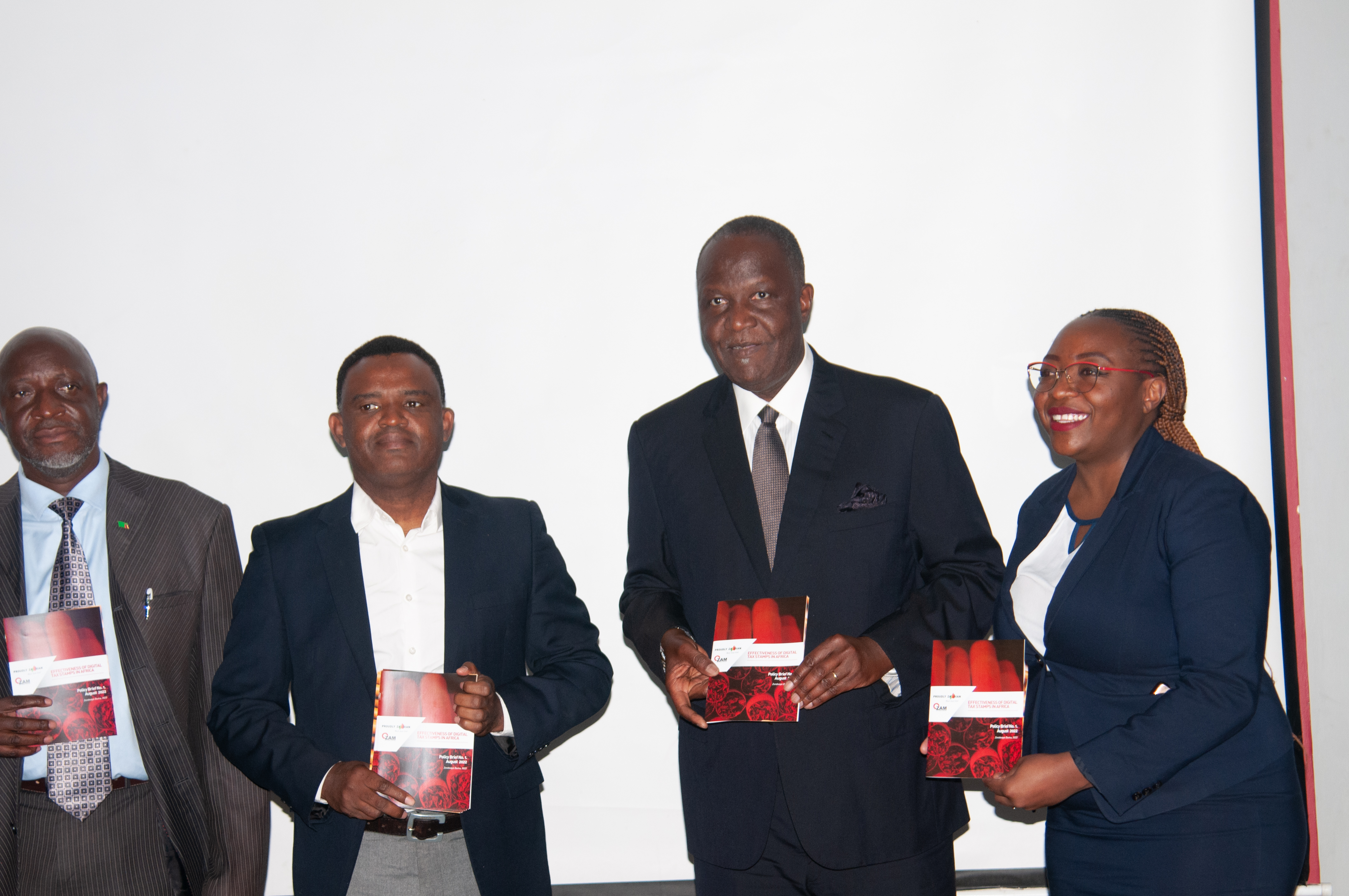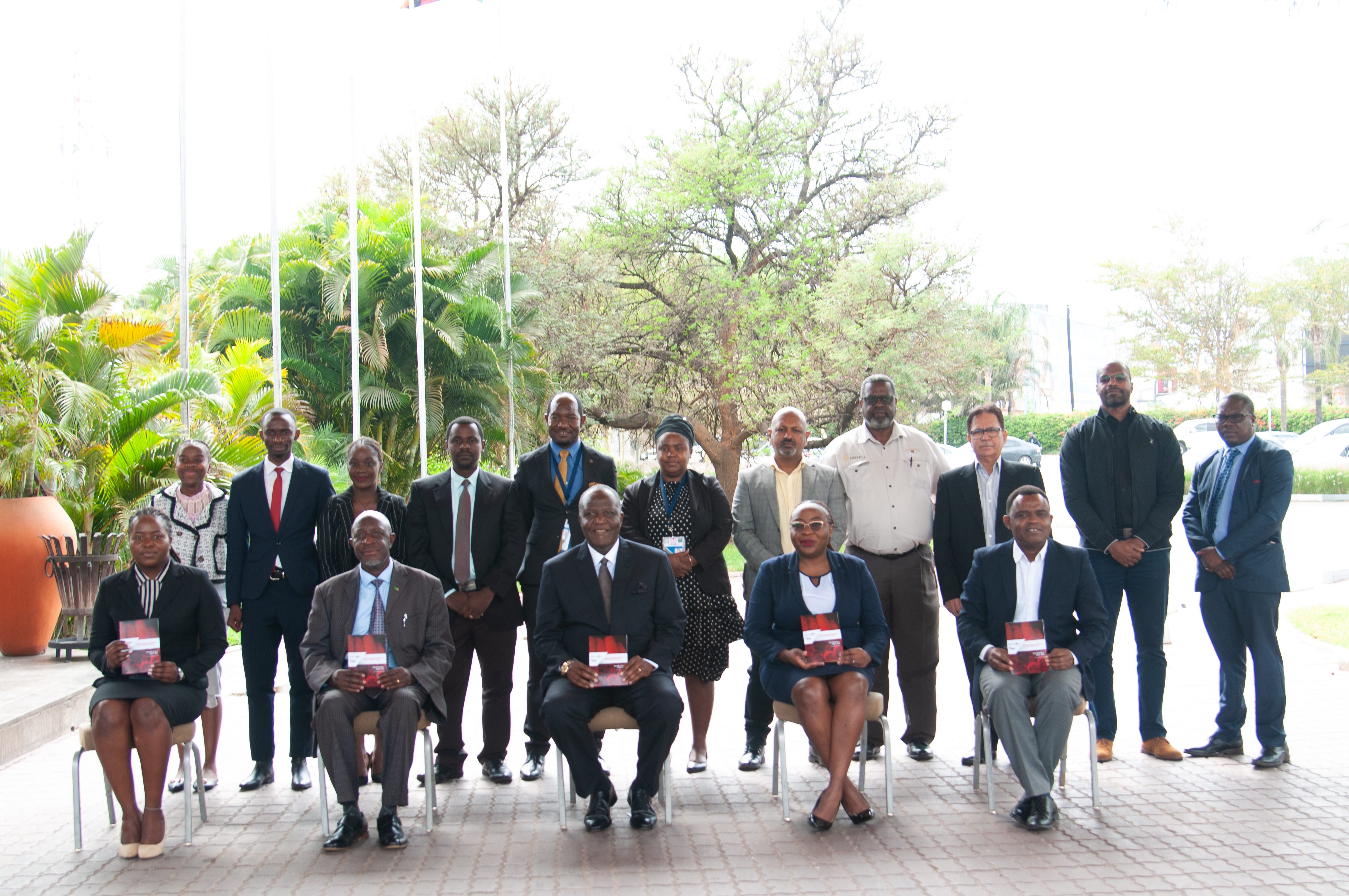
FOR IMMEDIATE RELEASE
WITH PICTURES
NOVEMBER 11 2022
ZAMBIAN BREWERIES LEADS THE WAY IN DIGITAL TAX STAMP DIALOGUE
Manufacturing stakeholders launch policy brief on effectiveness of Digital Tax Stamps



LUSAKA, ZAMBIA – Representatives from the Ministry of Finance and National Planning, Ministry of Commerce, Trade and Industry, Ministry of Small and Medium Enterprises Development and the Zambia Revenue Authority (ZRA) toured Zambian Breweries’ Mungwi Road plant in Lusaka recently to gain a better understanding of the implications of government’s proposed introduction of Digital Tax Stamps (DTS).
The Ministry of Finance proposed the introduction of Digital Tax Stamps to enhance tax compliance on all excisable products. The solution is part of the government’s strategy to combat illicit trade, plug revenue leakages and close gaps in the tax collection system by requiring goods such as bottles of alcoholic beverages to carry an official label or mark demonstrating excise tax has been paid on them.
The high-level plant tour was a precursor to a public-private dialogue and policy brief launch on the Effectiveness of Digital Tax Stamp (DTS) and was part of a larger tour of manufacturers organised by the Zambia Association of Manufacturers (ZAM) and included tours of British American Tobacco (BAT) and Trade Kings operation sites.
The Government through the Ministry of Finance and National Planning had proposed the implementation of Digital Tax Stamps for the manufacturing sector in its 2023-2025 medium-term budget program.
Speaking during the launch, Minister of Technology and Science Hon. Felix Mutati encouraged the champions of industry to table the issue through the Public-Private Dialogue Forum and encouraged them to view the proposed tax stamps as a driver for economic growth.
The minister said: “The Public-Private Dialogue Forum was established for the public sector to ascertain what frameworks and regulations work for the private sector, and this is the first step in realising a balanced solution to the proposed Digital Tax Stamps. The digital transformation of the economy remains a key priority because we will be able to eliminate illicit trade across various sectors and optimise tax revenue collection.”
Meanwhile, Zambian Breweries Corporate Affairs Director Ezekiel Sekele said he was hopeful that the brewer would help the government arrive at a final decision with the right information through honest, transparent dialogue and engagement regarding the implementation of Digital Tax Stamps.
“We would highly recommend a phased approach and that we have open engagement between the private and public sectors to find effective alternative solutions for all stakeholders. The solutions should be fit for purpose and specific to the industry. It is also imperative that we take the time to learn from other countries in Africa, such as our counterparts in the region such as Tanzania and Uganda to see where operational challenges have been experienced” he said.
Speaking at the same event, Zambia Association of Manufacturers – Vice President – South Chipego Z. Chileshe advised the government to take a sectoral approach to inquire what measures would be effective for Digital Tax Stamps.
“Policy and regulatory changes such as the introduction of Digital Stamps have the potential to greatly affect industrial development and employment creation. We are confident that the government will take into consideration key factors with respect to the form of digital solutions implemented and whether they are fit for purpose in a particular sector and anchored in a robust stakeholder consultation,” she said.
Meanwhile, renowned tax expert Professor Oliver Saasa advised that the system, when not correctly implemented had the potential to raise operational costs for legitimate manufacturers in the excisable sector, thus putting inflationary pressure on certain products.
In his paper, Professor Saasa urged the ZRA to urgently address pressing concerns raised by stakeholders regarding the stamps. Of note were clarifications on who would bear the cost of installing, operating and distributing the stamps as well as who would facilitate the technical interventions, upgrades and maintenance required.
The manufacturing industry, in particular, the alcohol industry’s growth has been threatened by the growth in the illicit alcohol market, heavily driven by smuggling, proliferation of counterfeit beverages, and home-made hard liquor (Kachasu) resulting in massive tax leakages and a significant threat to public health.
Mr Sekele called for increased and continued multi-stakeholder collaboration to hasten the development of effective strategies that will either eradicate or convert the illicit market into a legitimate alternative sector. “It is time the illegal sector was made to play by the rules, drive safe, innovative production and participate in promoting public health while also increasing its contribution to socio-economic growth of the country,” he concluded.
Ends
About Zambian Breweries
Zambian Breweries Plc is part of Anheuser-Busch InBev (AB InBev), the largest brewer in the world, with more than 500 beer brands and some 200,000 employees in over 50 countries. It is also one of the world’s largest bottlers of soft drinks. Zambian Breweries was established in Zambia in 1968 and its product range has grown to include clear beers such as Mosi Lager, Castle, Carling Black Label, Eagle, Stella Artois, and Budweiser.
For media inquiries please contact
Gillian Langmead at Langmead & Baker Ltd
+260 979 060705
info@langmead.com
